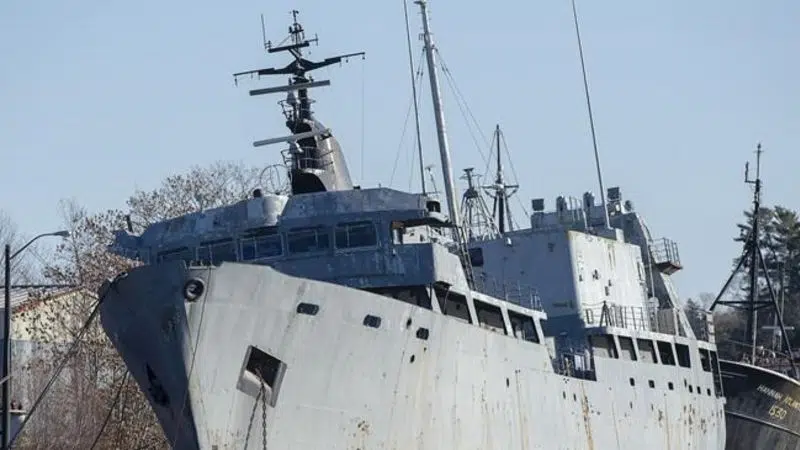
Local MP applauds as coast guard works to secure derelict ship from N.S. river
BRIDGEWATER, N.S. — The Canadian Coast Guard has secured a listing navy vessel from a Nova Scotia river, in the latest major case to occur in the riding of a federal cabinet minister who has championed the cause of removing derelict vessels.
The agency said in a briefing Monday that a federal environmental team arrived at the site on the LaHave River in Bridgewater, N.S., on Dec. 1, and contractors began work on the Cormorant the next day.
“I’m quite pleased to see the amount of work,” said federal Fisheries Minister Bernadette Jordan, who has made addressing the problem of abandoned and derelict vessels a personal priority since her election in 2015.
“It’s nice to drive by and see people actually working on this issue.”


